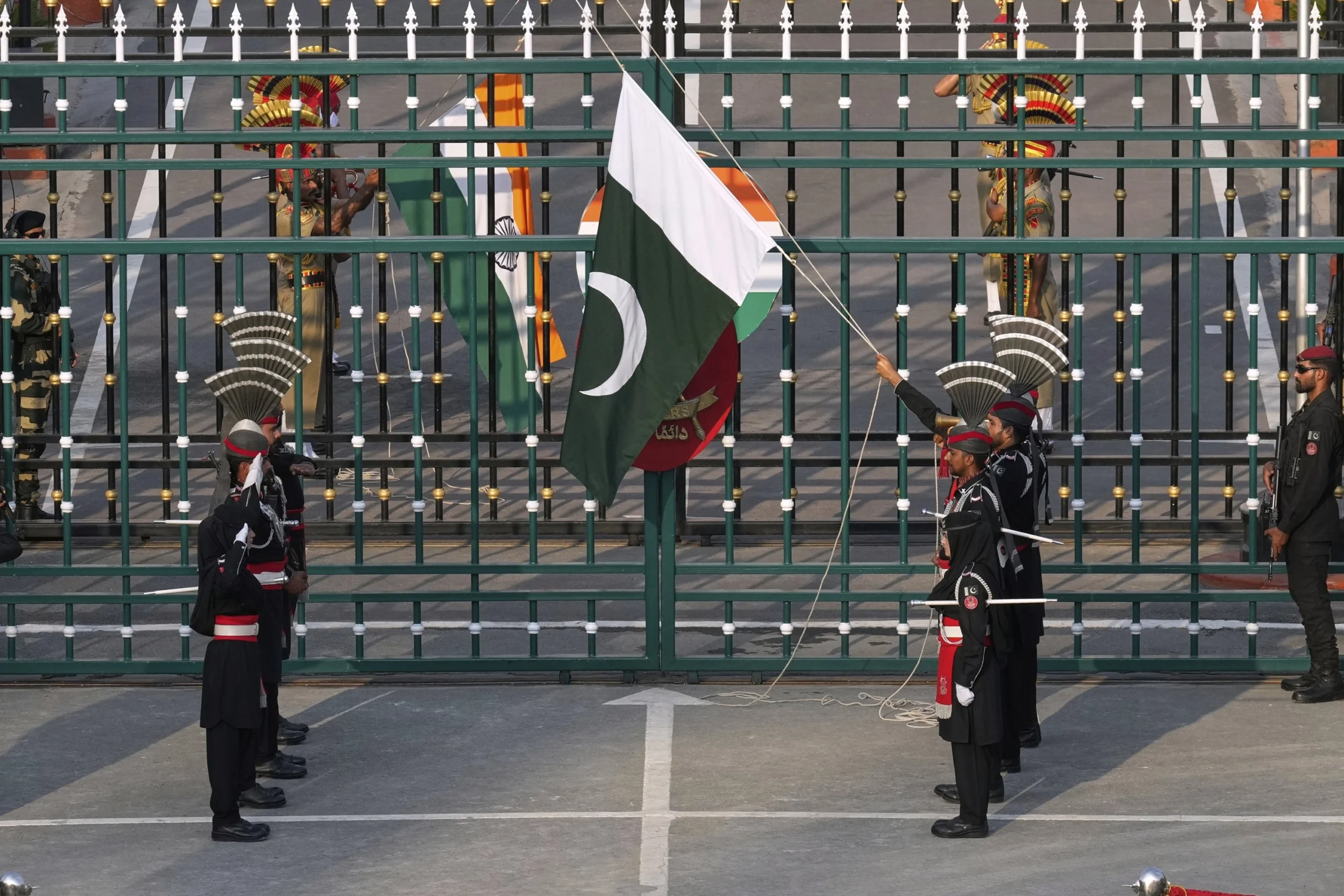Since 1947 it has been indisputably evident that India has embarked on a mission to discredit or subvert Pakistan – the idea of Pakistan. For this, its whole national apparatus is working tirelessly to scrap Pakistan from nationhood. It is very alarming that a complicit silence is found within a few Pakistani circles. And we have failed to comprehend the scale of the threat we are facing. It should not be a cliché anymore that the people of Pakistan would forget what India did to us right from the partition.
Historical Tensions and Partition
They unilaterally occupied Hyderabad and Junagadh without any substantive resistance. But Kashmir was altogether a separate story where they had to face stiff resistance, and they failed to occupy it in totality. Thanks to geographic contiguity, Kashmiris received full support from their brethren in the nascent state of Pakistan. It is pertinent to remember the Poonch rebellion, which was not flared up suddenly as an isolated event, but a whole history of Dogra oppression made it happen. You may call it the July 31, 1931, massacre of the 21 Kashmiri Muslims struggling to complete the prayer call, or a more recent mass-scale massacre famously known as the ‘Jammu Massacre,’ where Maharaja Hari Singh instigated a Muslim pogrom in 1946 before partition and ethnically cleansed a huge segment of Kashmiris from the Southern Districts adjacent to Poonch, bordering Sialkot, and especially Jammu, saw a gruesome and unforgiving face of Dogra tyranny. It is estimated that nearly five hundred thousand Kashmiri Muslims were killed, and those who survived fled to nearby Pakistan in West Punjab.
Maharaja Hari Singh initially wanted an independent Kashmir, without joining either India or Pakistan. To crush the people’s wishes, he fully conspired with the Congress, and took complete backing from the RSS and the Princely State of Patiala for reinforcing its foot soldiers. He brought havoc upon the Pakistan-loving aspiring Kashmiris. Despite the Muslim Conference unanimously declaring accession with Pakistan on July 19, 1947, Maharaja Hari Singh acted upon the agenda borrowed from the Indian National Congress and started killing Muslims or driving them away into West Punjab to demographically change the population matrix in Kashmir. This obviously stirred counter-rebellion and killings of Hindus and Sikhs. Ultimately, India interfered militarily on October 27, 1947, and engaged in an armed conflict after the Maharaja illegally signed the instrument of accession a day before.
What matters most is that Indians failed to occupy the whole state of Jammu and Kashmir, and a ceasefire line was established under the auspices of UN Security Council Resolution Number 47.
The 1971 War and the Creation of Bangladesh
Obviously, we all know what happened in 1971, and Pakistan was disintegrated to the point that Indira Gandhi celebrated Indian victory by claiming that “today we took revenge for a thousand years of Hindu slavery and drowned the Two-Nation Theory in the Bay of Bengal.”
This is the venom the Indian state constantly harbors against Pakistan, and we must be well-versed about it. Today, India is ruled by a Hindu fascist and ultra-nationalist party, the BJP, which can go extra miles in its enmity towards Pakistan.
If we wonder about the glaring similarity between Bangladesh and Balochistan, then we need to set out on a journey from 1962. Do you remember Sashanka S. Banerjee? Obviously not. How would you, after nearly six decades? You would have forgotten how it all started.
Okay, let me remind you that the idea of an independent Bangladesh was presented to the Indian diplomat at the same time when China occupied Aksai Chin and Tezpur in Arunachal Pradesh. India was defeated and humiliated to the point that they accepted their territorial losses, while China later withdrew its forces from Arunachal Pradesh. It was a time for Sheikh Mujib to spell out his ambitions because he was fearing Chinese intervention at any available opportunity to kill Mujib’s aspiration of an independent Bangladesh, owing to its close ties with Pakistan. So, he gave a plan to the Indian state through that same man, the so-called diplomat Sashanka S. Banerjee, in an undisclosed rendezvous and gave him a letter enclosed in an envelope demanding full support from India. This admission was recorded in his authored book, India, Mujib ur Rehman, Bangladesh Liberation and Pakistan.
Sheikh Mujib knew that China could scuttle his plan, and he made a gamble. Unfortunately, it paid off on his part, and Pakistan was dismembered.
Earlier, China occupied ‘Jelep La’, a vital mountain pass in the Himalayan Mountain Range bordering Sikkim, in the 1965 Indo-Pakistani war to mount pressure on behalf of Pakistan.The strategic importance of this pass had increased its worth by virtue of its proximity to the Siliguri Corridor, or the Chicken Neck.
In theory, an army occupying this pass could easily march towards East Pakistan to stop the complete meltdown of Pakistan’s hold on the region. This was the actual fear for both Indian and Mujib Camps. They both saw its imminence and tried to accelerate their heinous plans of hampering Pakistani territorial integrity. This was the sole logic that the Indian army delayed its military assault in East Pakistan, waiting for winter to set in in 1971 so that those mountain passes would be blocked for any Chinese intervention. Pakistan was snubbed and betrayed by its own East Pakistani Awami League, who succeeded in getting its hold on the vast territory of East Bengal, and Pakistan was deprived of its rightful share of its territory, its inhabitants, and its resources.
This ignored the fact that Sylhet voted for Pakistan in a referendum held in July 1947 and that the East Bengal assembly adopted a resolution to join Pakistan in June 1947, prior to the partition ever taking place. To this day, Pakistan has never come out of that strategic shock. Pakistan is still reeling from the consequences. But the silver lining of that horrible disaster is that now Bangladeshi people are realizing the true nature of that unholy alliance between the Awami League and the Indian State, which nearly brought Bangladeshis a new yoke of slavery. Thankfully, Bangladeshis dismissed that Awami League government, a compromised government which mortgaged their independence and sovereignty in the hands of the Indian state.
Contemporary Threats and Geopolitical Strategy
India unilaterally altered the disputed status of Jammu and Kashmir and the LoC multiple times after the Shimla Agreement, which prohibits such actions. They occupied Siachen Heights in 1984; they revoked articles 370 and 35A in 2019 and put the Indus Water Treaty in abeyance in 2025. In the face of such a bully, what options are left for Pakistan besides aggressive diplomacy? Pakistan should prepare for a final showdown and consolidate its defenses before any new conflict comes to the fore.
The hypocrisy of the Indian state is well known; on one hand, they unleashed terror in East Pakistan through their proxy Mukti Bahini, and on the other, they have shamelessly accused Pakistan of orchestrating a terror campaign against India since the onset of the Kashmir resistance in the valley. This self-contradictory policy is nothing but a laughingstock for the world, which has now understood its duplicity. Kashmiris have been fighting for self-determination, a promise Indians made to them in the UN to hold a free and fair plebiscite so that they could decide which party they want to join. But Indians never lived up to their promise and denied Kashmiris the right to vote for their future, which led frustrated Kashmiris to start fighting for their rights. However, India found a scapegoat and threw the whole blame on Pakistan as a sponsor of terror.
The story of Balochistan is no different, even though Pakistan lingers on and frustrated the evil designs of the enemy. Still, their fake narrative and media campaign has scarred the face of a progressive Pakistani dream, which could have been more tolerant of coexistence and peace among the various ethno-nationalist groups. In 1973, Sashanka S. Banerjee made a ‘Kitchen Cabinet’ in London and frequently visited there to meet with Baloch and Pashtun Leaders in a bid to persuade them for a joint venture to secede from the State of Pakistan. For this purpose, this so-called Indian diplomat had been enjoying total diplomatic immunity since his early dirty days of inciting the Bengali Civil War, but he could not have been allowed under any international law to subvert the integrity of any foreign nation had he considered diplomacy fair play and stuck to his primary role of fostering good relations through diplomacy. He was not alone; he brought Sheikh Mujib with him to give the impression that these people would listen to him as they somehow in the past worked together in the United Pakistan and each of them regarded others in high esteem. But to cut the story short, Indians and their newly Bangladeshi friends failed miserably to steer their nefarious agenda against Pakistan, and the so-called Kitchen Cabinet was dissolved. But today, the geopolitical dynamics have changed, and India has found another ally which is interested in damaging Pakistan. Guess who? Yes, Israel. Both are hegemon and expansionist regimes, and their interests are now converged, as they see Pakistan as a sole threat which is in possession of nuclear weapons, and it has means of delivering them to any regional bully. So, currently, the insurgency in Balochistan is being fueled and financed by both India and Israel to keep Pakistan internally entangled so that the projection of its external influence could be curtailed. The beneficiaries are again both India and Israel if they are not stopped.
So far, what I want to make my readers realize is that India is our eternal enemy, and it will not sit idly unless they initiate hostile agendas to disrupt Pakistani progress, peace, and security. Pakistanis should inculcate this fact in their minds and devise their own counter-strategies to undermine and sabotage Indian-Israeli plans vis-a-vis Pakistan. The significance of this posturing has increased manifold after the failed Indian military action post-Pehalgam False Flag and their absurd abeyance of the Indus Water Treaty. Its implications are far-reaching and immense, as Indians want to kill Pakistanis through drought and famine. It’s an utter violation of international law and ethics, where in times of war, one cannot deny water to the enemy. Pakistan must rise to the occasion and convey its intent on international forums with complete strategic clarity that any attempt to suffocate Pakistan would be considered an act of war, and Pakistan shall fight to the last for safeguarding its right of self-rule and integrity in the face of any external threat.
The views expressed in this article are the author’s own. They do not necessarily reflect the editorial policy of the South Asia Times.







